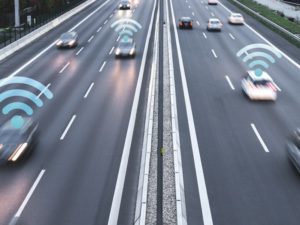AI predictions on crashes are ‘missing link’ in road safety quest
Using AI predictions on when and where road collisions will take place to help drivers avoid them could revolutionise road safety – including for grey fleet drivers.

Predina’s AI analytics platform predicts and mitigates accident risk in autonomous vehicles and today’s vehicles, using a range of contextual data
So says tech start-up Predina, which is looking to build on traditional telematics systems through its new AI analytics platform, including in the insurance sector.
Co-founded by Nigerian-born aeronautics engineer Bola Adegbulu, the firm’s new system predicts and mitigates accident risk in autonomous vehicles and today’s vehicles, using a range of contextual data.
The platform explores drivers’ intended routes and enables them to avoid known blackspots, based on dynamic predictions of road collision likelihood that take in factors such as road layout, weather, time of day and other factors external to the vehicle itself.
According to Predina, the technology could break new ground, both in terms of road risks – taking in grey fleet drivers too – and for usage-based insurance, which could see drivers gain from lower premiums for using lower-risk routes.
“The missing part of the puzzle in the quest for safer roads is looking at everything outside the vehicle,” said Predina business development director Guy Barbor. “Focusing on this offers huge prospects for insurers to change premiums and for commercial fleets to assess and manage work-related road safety. This extends to the 14 million-strong ‘grey fleet’ and the millions of miles driven by employees using their own private vehicles on company business.”
The subject will come under focus from Barbor in a panel discussion at IDEALondon Future Mobility breakfast event this Thursday 28 November 2019.
“Long-established commercial relationships between car manufacturers, insurance companies and rail operators are being disrupted by startups developing new products and services that are changing behaviours and empowering consumers with greater control and choice over spend and service,” added Barbor. “There are huge opportunities to reconsider established norms – and predicting road crashes before they happen has great potential.”














